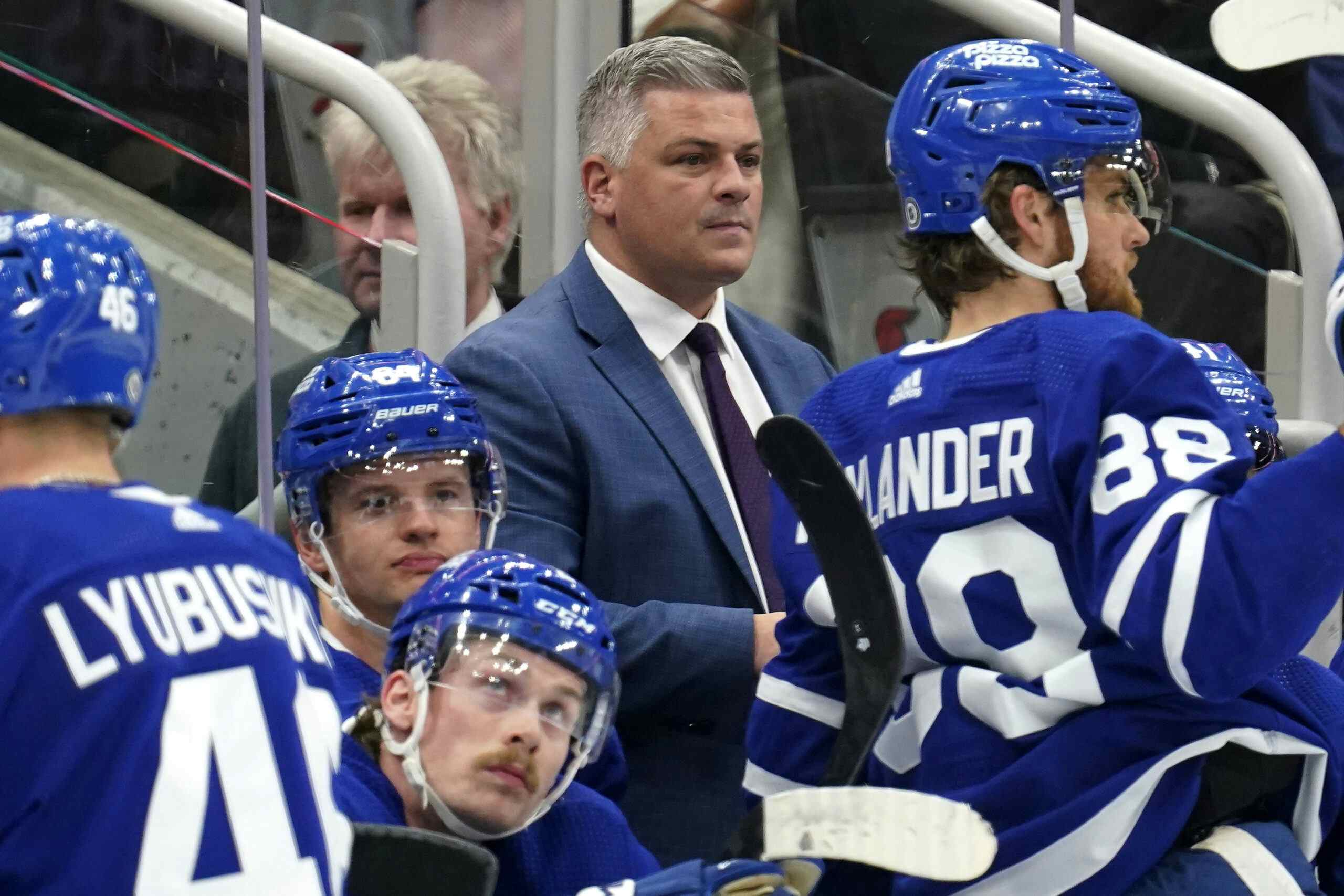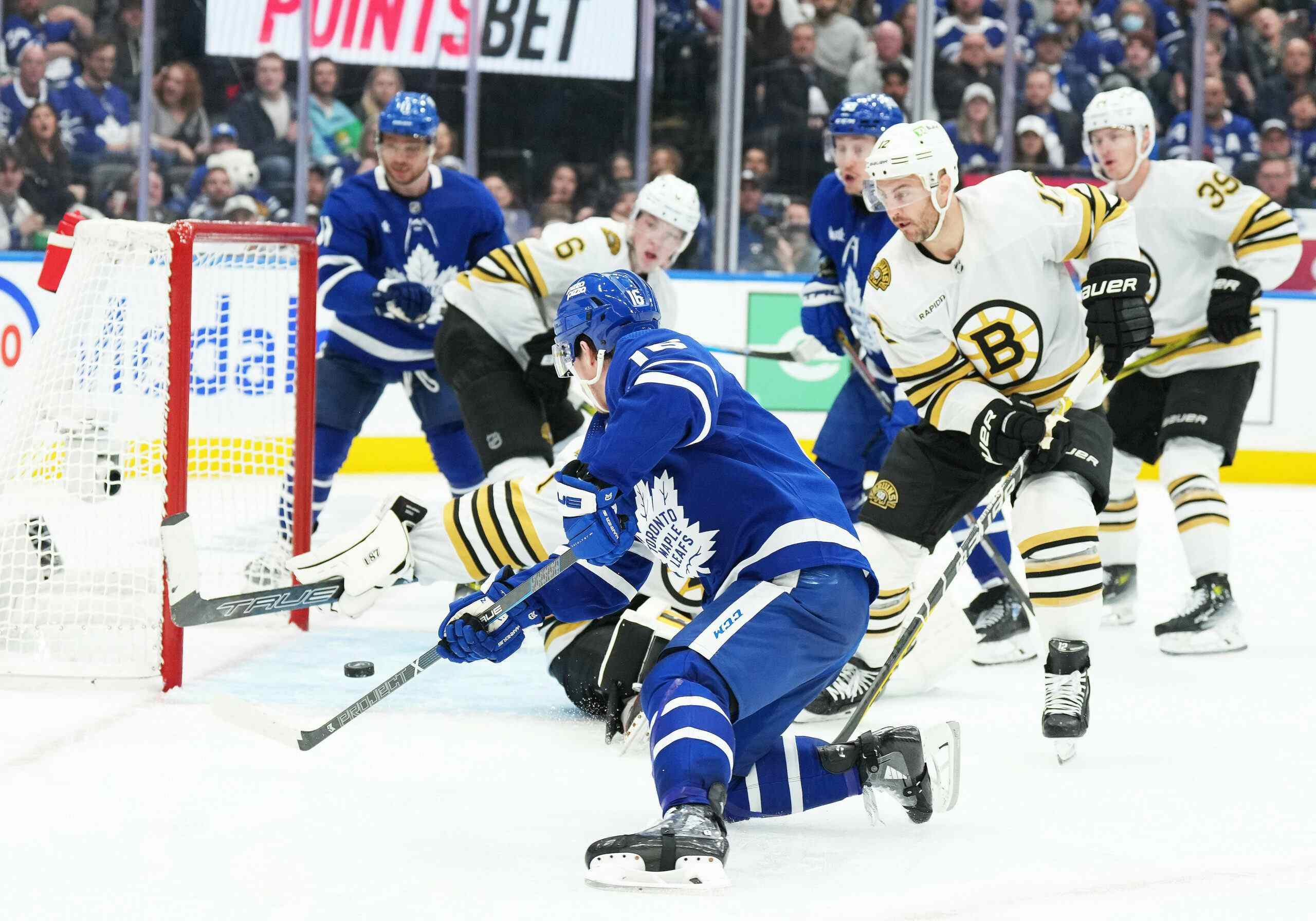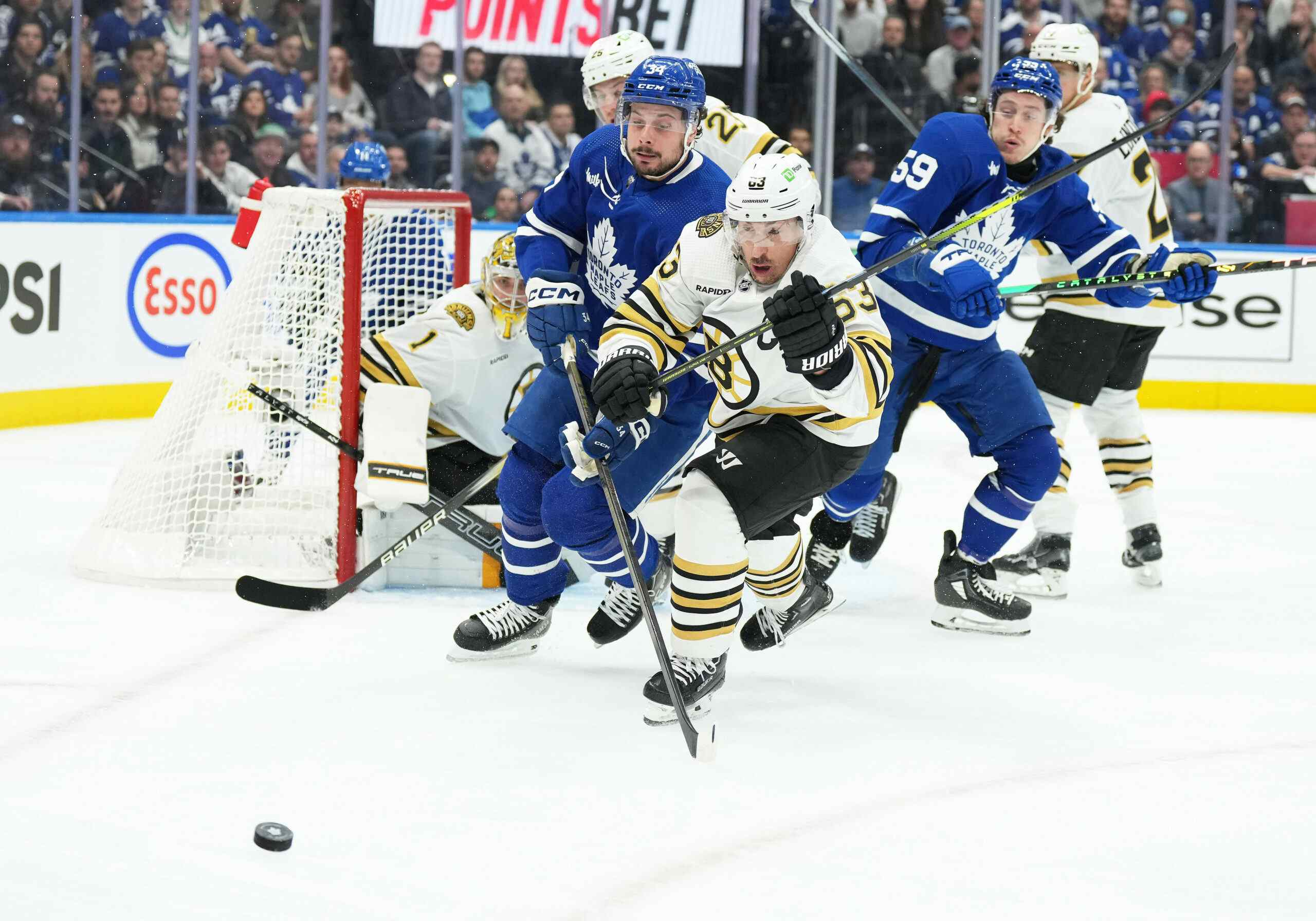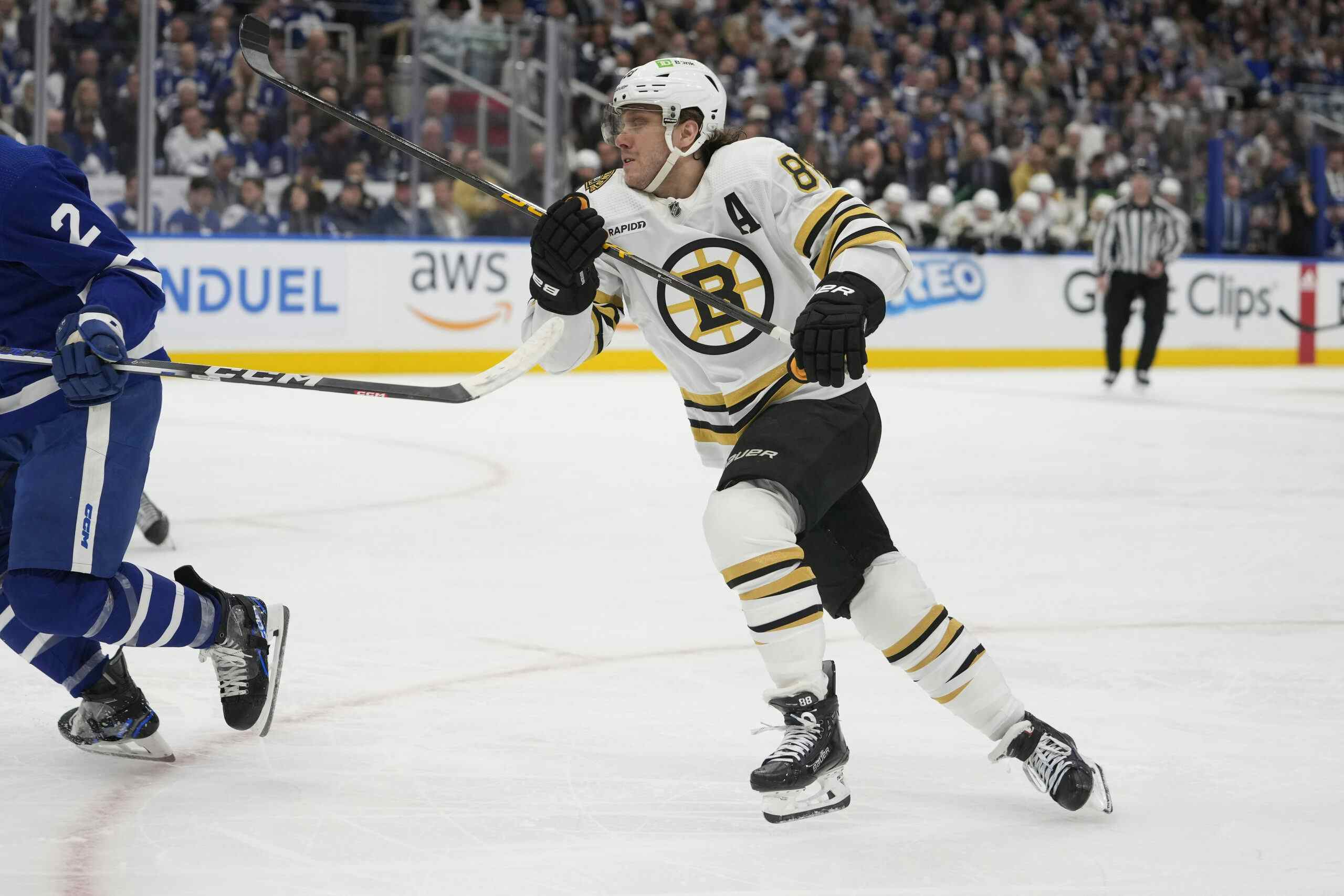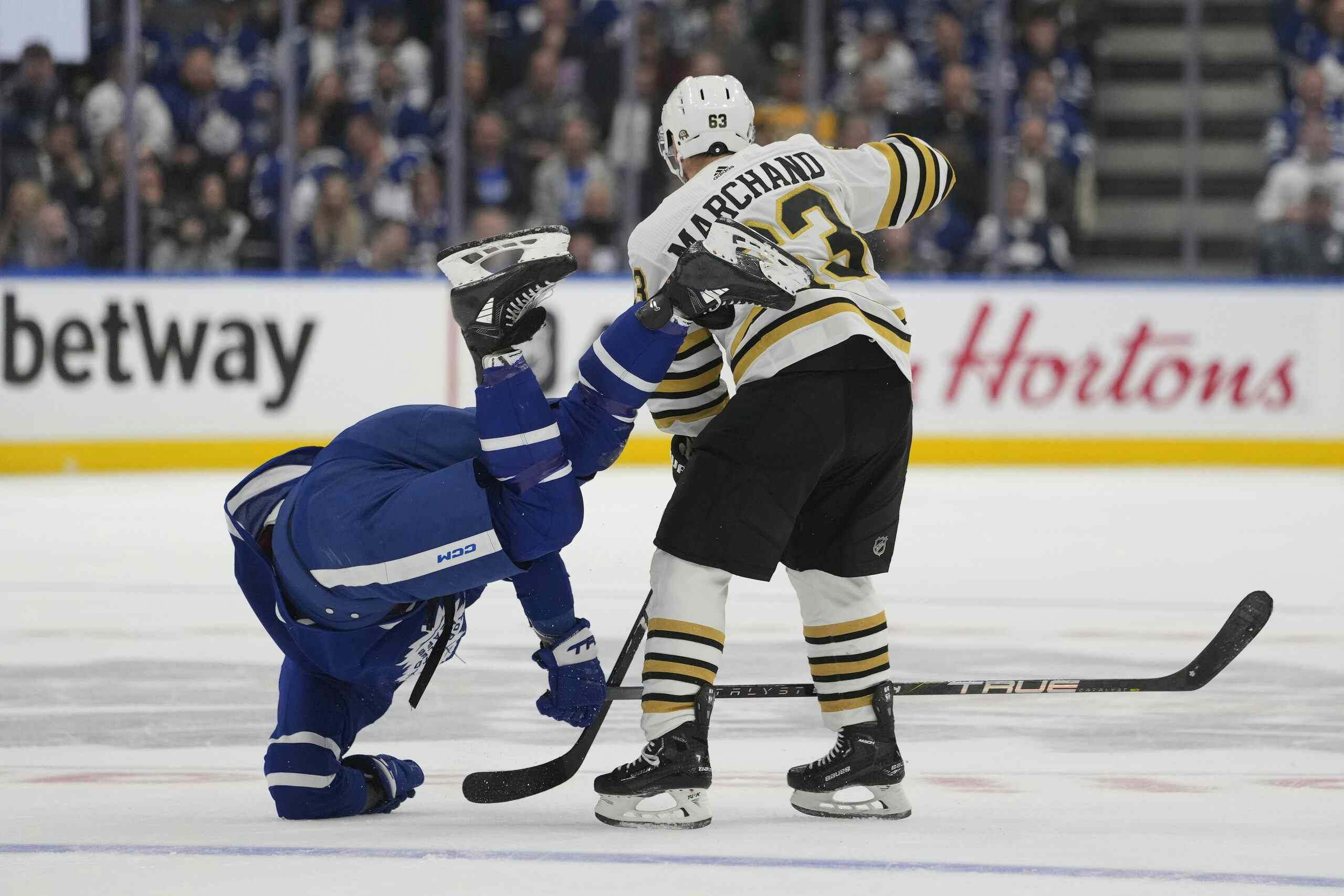The James Reimer “clutch” debate
By Cam Charron
10 years ago
“I don’t know the one we inherited (James Reimer). If the one we inherited is anything like the one we’re bringing in, we have the best tandem of goalkeepers in the NHL.”
First off, it doesn’t take a math degree to note that James Reimer has the better career than Jonathan Bernier so far. Perhaps Leiweke got “the one we inherited” mixed up with “the one we’re bringing in” since the goalie that Leiweke inherited has twice the number of starts and a save rate three points higher despite the two being the same age.
I’m going to have to end up buying a James Reimer jersey at the end of this summer. I’ve darkened a tonne of pixels about the benefits of Reimer in my two years writing here, and one argument consistently pops up.
Then there’s this train-wreck in the press defending the Bernier acquisition:
You can look at the numbers and make an argument that Reimer is just fine as a No. 1. But about that choke job in Boston? Reimer was the rebound-ejecting struggler who let all those pucks get past him as the Bruins rallied from 4-1 down midway through the third period to score the unlikely overtime victory. [Toronto Star]
There’s really no way to quantify a goaltender’s “clutch” ability. People like to look at Stanley Cups (of which Bernier has the same number as Reimer as a starter) or wins (of which Reimer has more) but ultimately, you can’t really predict which goalie will impact the playoffs to a large degree.
The Chicago Blackhawks won this season with Corey Crawford in net, who allowed this goal in overtime and this goal in overtime and this goal in overtime. Yet Crawford, like Reimer, is a goaltender with a high save rate that takes a disproportionate amount of abuse because some people don’t know how to evaluate goaltenders it’s difficult to evaluate goaltenders.
Tuukka Rask looked unstoppable—minus this one miscue—through almost all of the postseason, and wound up with the goat horns after Chicago tallied twice in 17 seconds to take the season’s final game. Tuukka Rask looked unstoppable, despite the last time he was a starter in the playoffs his team blew a 3-0 series lead.
There’s a reflex among sports fans and commetators to use “championships” as a barometer for the quality of an individual player, when those should be looked at the end of a career and not in the middle. There is zero predictive value in looking at past champions to determine future champions. The Chicago Blackhawks are as close as we’ll get to a dynasty in this day and age because they’ve won twice *with the same core*. They’re the only team to have won two Stanley Cups since 2000.
The Leafs playoff performance should not be cited if you’re trying to suggest there are areas the team can improve. Not to say that there aren’t areas the team can improve, but the playoff Leafs in Games 4, 5, 6 and 7 was the best we saw of the Leafs all season, the Game 7 blow-up notwithstanding.
As an example, here’s an old Pierre LeBrun article I found discussing a young goaltender. Try and guess who it is before clicking on the link:
In his first NHL playoff series last spring he gave up 21 goals in six games to [team], his .884 save percentage and 3.50 goals-against average from that series giving him pause for thought entering the offseason.“It was a disappointing end to the season last year, and you want to be better than that,” [Goalie] told ESPN.com this weekend.
Two years later, that young goaltender was the same one that lifted the Conn Smythe Trophy, Stanley Cup, and signed a 10-year extension with his team. He was the same young goaltender that beat out Jonathan Bernier for the starting job in Los Angeles.
It’s tough to predict the future. It’s even tougher to predict if you restrict your sample size to the playoffs, or restrict your knowledge of goaltenders in the organization. Add to the fact that Dave Nonis and Leiweke both appear to have far too much faith in Randy Carlyle’s system when *poof* there’s little evidence to support the theory that coaches contribute to a goaltender’s save percentage numbers.
Recent articles from Cam Charron

